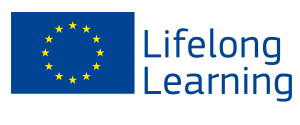“With the support of the Grundtvig Program of the European Union”
The project set out to answer the following key questions:
Are all intercultural mobility experiences similar?
Or is there an essential difference between the experience of crossing a national border (i.e. geographic mobility) and that of accessing a new social class (i.e. social mobility)?
Are there some “generalizable” challenges in mobility experiences or is each experience a unique constellation of difficulties?
Are there strategies that seem more adaptive and competences that are helpful in overcoming these challenges?
How can we assist and accompany people in mobility situations through a personal guiding process?
To answer these questions and gain a deeper understanding about mobility processes, first, a qualitative and quantitative research was carried out amongst people who have already experienced some form of mobility. If you are interested in reading about the research process and its outcomes, please, register HERE and you will attain free access to the full 4C Research Report.
In short, the two main outcomes of our research were the MOMAP Chart and the MOMAP Survey.
The MOMAP Chart visualises and summarises the results of our qualitative and quantitative research. It defines successful mobility and shows the 5 dimensions that influence the successful mobility situation. The dimensions that have connection to the success indicators (satisfaction, change, and skills development) are: Motivations, Identity Orientation, Intercultural Skills, Challenges, and Relational Strategies. The 4C research report describes both the success indicators and the 5 dimensions in detail.
The MOMAP Survey is an on-line tool to assess competences that help to carry out a successful mobility experience so that mobility can become a source of personal growth, satisfaction and skills development. The survey examines the 5 dimensions: motivations, challenges, identity orientation, relational strategies and intercultural competencies in situations of geographic and social mobility. The results are generated immediately and give an overview about above mentioned competences connected to the mobility situation.
Identifying the factors that contribute to the successful mobility experience was the initial achievement of the project, upon which we built our guidance methodology comprised of an online Mobility Pack, an online tool-kit with exercises organized along the 5 dimensions and a protocol on how to use these exercises in a personal guidance process.
To test the MOMAP Survey and the guidance methodology developed during the project, each 4C partner implemented a pilot guidance project with 10 participants per country. Altogether 40 participants in Hungary, Malta, France and the UK tested our methods and evaluated the guidance process at the end. The aim of the guidance was to identify strengths and areas to be developed for each participant based on the results of their MOMAP Survey, and thereafter we jointly chose personal objectives to work on specific areas with the use of the Mobility Pack.
Participation was voluntary and most people took part in a guidance process of 6 to 8 sessions. The composition of participants was rather diverse.
We involved people:
-in short-term geographic mobility (e.g. students on international exchange)
-in long-term mobility (e.g. migrants settling in a new country for professional reasons or for family reunification)
-about to embark on geographic mobility (e.g. participants of international volunteer programs)
-in social mobility situations.
Based on the results of the pilot sessions, we revised the guiding methodology, reviewed our tools and exercises and created a Trainer’s Training and a detailed Handbook on how to use our methodology.
The aim of our Trainer’s Training is to raise trainers’ awareness on what makes successful geographic and social mobility experiences and familiarize them with the tools and practises in the Mobility Pack so that they can integrate our methodology in their daily practice. To learn more about our training concept and offers: CLICK HERE.
In addition to the training offered to Trainers, we also developed a Training for Mobility Participants. The 5-day training was again structured around the 5 dimensions each day addressing a new theme: questions of motivation, identity orientation, intercultural skills, relational strategies and challenges. The training aimed for the practical approach, which encouraged active participation, creativity and interaction among participants. If you would like to know more about the Mobility Training: CLICK HERE.
To recap the main achievements of the 4C project are:
– the MOMAP Chart that defines successful mobility and the 5 dimensions that have an influence on the success factors
– On-line competence assessment tool called the MOMAP Survey that gives immediate feedback on strengths and areas to be developed
– MOMAP Guiding Methodology including the online Mobility Pack with detailed exercises structured around the 5 dimensions
– A 5-day Trainer’s Training supported by the MOMAP Handbook that contains the theoretical background and gives practical recommendations on how to use the methodology
– A 5-day Training for Mobility Participants that develops competences in a group setting
On the long run, we hope that by bringing our results and methodology to the widest professional public possible, mobility will become an experience of personal and professional fulfilment for more and more people. This also means that communication in cultural contact zones becomes less conflict-ridden and marginalized citizens will experience less exclusion.

